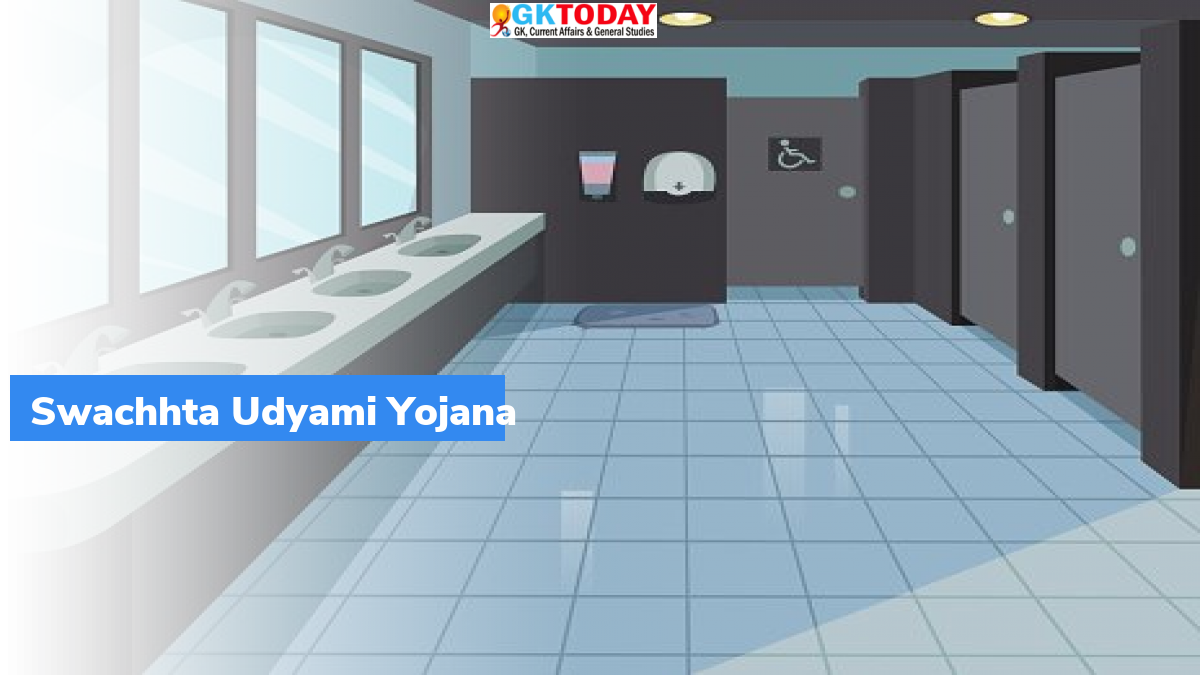Swachhta Udyami Yojana
The Swachhta Udyami Yojana was launched on October 2, 2014. It was launched by the Ministry of Social Justice and Empowerment.
About the scheme
The scheme provides financial support for the construction, operation and maintenance of toilets, especially Pay and Use Toilets. It encourages to build toilets in PPP model, Public – Private Partnership model.
What are the objectives of the scheme?
The main objective of the scheme is cleanliness. It also aims to provide livelihood to the Safai Karamcharis and the manual scavengers. Through this, the scheme aims to achieve overall goal of Swachh Bharat Abhiyan.
What are the key features of the scheme?
- The scheme provides financial assistance to manual scavengers to construct, operate and maintain Community toilets. This is done in public-private-partnership mode. It also allows purchase of Sanitation related vehicles. The beneficiaries of the scheme can also take contracts to operate these vehicles. The contract is provided by the municipalities.
- Under the scheme, loans are provided at concessional rate of interest of 3% to 4% per annum. Maximum of 25 lakhs of rupees of loan is provided for construction of toilets and 15 lakhs of rupees is provided for procurement of Sanitation related vehicles.
- The scheme also provides a capital subsidy of 3.25 lakhs of Rupees to each identified manual scavenger.
What are the benefits of the scheme?
The scheme aims to provide easy access ability to households and also to the floating population in public places. It ensures proper maintenance of facilities. It prevents the necessity of manual Scavenging. It creates appropriate infrastructure to tap the underutilized potential. It creates facilities that collect garbage from the source. It creates employment opportunities for targeted manual scavengers.
Why does the scheme focus on manual scavengers?
The scheme aims to improve the life of manual scavengers. Between 2016 and 2020, 472 manual Scavenging deaths occurred in India. In 1993, India banned employing manual scavengers. The prohibition of employment as manual scavengers and their Rehabilitation Bill, 2020 proposes to mechanize sewer cleaning. With these efforts, the role of manual scavengers are to reduce in the country. Therefore, it is essential to focus on the livelihood of the manual scavengers.


